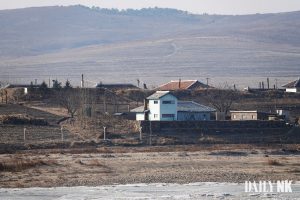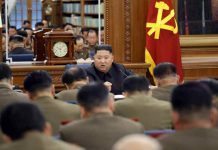A book published in January titled “Defector” (탈북자) is shedding light on the lesser-known stories of North Korean defectors, challenging stereotypes and misconceptions. The book was written by former documentary producer Cho Cheon Hyeon (55), who spent over two decades speaking to North Koreans living in China’s border regions.
Cho’s book is remarkable in more ways than one, particularly because it challenges the traditional South Korean narrative that often portrays North Korean defectors as desperately wanting to make it to the South. Cho’s views are different. According to his decades-long experience speaking to North Koreans, the majority of those who leave North Korea have no intention of ever defecting to South Korea.
In his book, Cho distinguishes defectors in three different categories: those working in China who intend to return to North Korea after earning enough money; those living in China long-term who regularly send money back to their family members in North Korea; and those wanting to defect to the South. According to Cho, the vast majority of North Koreans who leave their country belong the the first two categories.
A short-term move
Most of the stories featured in the book describe the experiences of North Koreans who left their country in the late 1990s and early 2000s as a result of famine. At the time, most defectors made their way to China to earn money to send to their families back home.
In Cho’s experience, these North Koreans went to China not because they intended to abandon their country, but instead left North Korea for purely economic reasons. For many, it was the only way they found to make money and support their family. Very few defectors had any desire to go to South Korea.
Mr. Jang, a 32-year old North Korean who spoke to Cho in 2004 in the Chinese city of Yanji held firm beliefs on this issue. According to him, defecting to South Korea would be akin to betraying one’s country as well as his remaining family members back home. “How could I leave my mother and younger sibling back home and go live a good life in the South? Defecting is a crime in and of itself but how can someone commit yet another crime by betraying their own country?” Mr. Jang asked.
Another North Korean, Mr. Heo (57), shared the same opinion. Although he had spent three years working in China, he always planned on going back to North Korea and had no intention of ever defecting to South Korea. Although his elder sister told him to stay in China, the thought of permanently defecting to another country was unthinkable to him. “I must return to North Korea because of the remaining children I have there,” he said. Cho was personally there to witness Mr. Heo and his wife cross the Tumen River back into North Korea.
“Better to live well in China than to live poorly in South Korea”
But not all North Koreans choose to go back home. Some decide to stay in China. Although they have chosen to live abroad, many don’t like to be labeled as defectors. This is because they don’t see themselves as having abandoned their country or families in exchange for a more comfortable life in South Korea. In fact, similarly to the previous category of “defectors,” many of them look down on those who choose to settle in the South. To them, they are the true “defectors.”
Cho spoke to over a hundred North Koreans living long-term in China, with many saying they would like to move back home if the economic situation improves. Few had any dreams of making it to Seoul. “Instead of going to South Korea and having to start all over from the very bottom, I would rather stay here in China and save a lot money,” Mr. Shin, a North Korean living in Yanji told Cho in 2005.

Cho describes several similar stories in one of the book’s chapters entitled “Better to live well in China than to live poorly in South Korea.” Although Mr. Shin could earn more money by going to South Korea, he prefers staying in China to maintain regular contact with his family and to have the possibility of visiting them once in a while.
Other North Koreans living in China had similar opinions. Many had bad experiences with friends and family members defecting to the South only to never hear from them again, ending up feeling abandoned and forgotten.
Mrs. Ryu (33) lives in a small town two hours from Yanji with her husband and daughter. She heavily criticizes other North Korean women who leave China for the South and leave behind their children, accusing them of creating even more separated families in the process. She has a particularly low tolerance for those defectors who publicly criticize North Korea when they make it to the South. “The country that educated you, fed you, the place where your siblings and parents still live, how can they say such things?”
Seeking a better life in the South
Then there’s the third category, those who the two former groups see as the real “defectors.” Cho puts forth various reasons for why some North Koreans choose to ultimately go to South Korea. Among them are women who want to provide a better education for their children; those who want the security and benefits that come with South Korean citizenship; and those who committed crimes in either North Korea or China and have no safe place to settle besides South Korea.
But one factor that Cho repeatedly emphasizes is the role that brokers, NGOs, and religious groups play in convincing North Koreans to come to the South. According to many defectors Cho spoke to in Chinese border towns, brokers—who often worked hand-in-hand with NGOs and religious groups—would sell South Korea as a gleaming image of hope, a wonderful utopia where these North Koreans struggling to make a living in China would be accepted, given housing, money, education, legal documents, and treated equally as South Korean citizens.
Enamored by what they saw in Korean dramas and the convincing sales pitch made by brokers, many did indeed make the move. But the after-effects of such defections left those North Koreans in China in an even more vulnerable position than they were before. As a result of these brokers and their “recruitment” of North Koreans to either defect or work as brokers themselves, Chinese authorities soon caught up with what was going on and increased crackdowns in border towns.
These crackdowns didn’t just make life for other North Koreans living in China more difficult, but it also put ethnically Korean Chinese in an unfavorable position. Police started sticking announcements on the doors of houses offering money for anyone who would report North Korean defectors living in their area. Crackdowns particularly intensified in the wake of the 2008 Beijing Olympics, with the police presence regularly intensifying in border areas ever since.
The dark side of NGOs
Some of the book’s most interesting chapters are left towards the end, detailing the long history of shady NGOs and religious organizations exploiting and scamming North Korean defectors.
Cho brings the reader’s attention to the connection between human rights and the darker side of humanitarian organizations. After 9/11 and Bush’s notorious “Axis of Evil” speech, the world’s attention was suddenly drawn to the human situation in North Korea, Cho writes. As a result, a flurry of NGOs and religious organizations sprung up citing the protection North Korean human rights as their mission.
According to Cho, however, this gave rise to many anti-North Korea groups who started using defectors to further their own personal and political agendas. Many defectors who had been brought to the South through such organizations were made to give false testimonies that would emphasize the “evilness” of the North Korean regime.

“Certain brokers, NGOs and missionary groups have been orchestrating and expanding North Korean defections to South Korea for political purposes,” Cho said in an interview with Hankyoreh last month. “The primary victims of actions like these are the defectors themselves.”
Throughout the last few chapters of the book, Cho highlights various high-profile criminal cases against religious groups and churches who scammed North Korean defectors out of thousands of dollars without being able to safely bring them or their family members to the South.
According to Cho, many churches have used defectors as an attractive front to increase the notoriety of their church and raise more money.
In 2004, Mr. Park (38), a defector living in South Korea, had to pay KRW 2.5 million (around USD 2,230) per family member to a missionary organization in exchange for having his family safely brought to the South. But when he was told his family members had been arrested in China, the organization demanded an extra KRW 4 million (around USD 3,568) to have them released.
When Park asked the missionary group why they were demanding more money if they were indeed a non-profit, they threatened him further, warning him to not slander their organization. Sadly, Mr. Park is far from being the only defector to fall victim to this kind of “NGO fraud.” Cho goes on to share various similar stories through interviews with other victims.
No such thing as one-size-fits-all
Through this book, Cho shows us that North Koreans who leave their country do so for various reasons and under varying circumstances. In Cho’s experience, most North Koreans don’t choose to leave their country for political reasons. They leave to earn money to be able to better care for their families. And most would like to go back, either in the short or long-term.
The book dispels the notion that all North Korean defectors want to come to the South. Many are content living in China and most only leave the country for a short period of time before returning back to North Korea.
Although those defectors who make it to South Korea or other countries receive the most press coverage, they are the minority. This book does a good job at sharing the much less covered stories of the majority, many of whom don’t even see themselves as “defectors” at all.
All names referencing North Koreans in the book and in this article are fictitious to protect the identities of the sources.




















